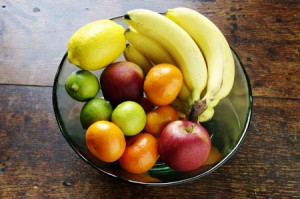 There’s more evidence than ever that eating red meat or processed meats is detrimental to your health. Harvard School of Public Health recently completed a study which examined data from more than 110,000 people and found that eating as little as two pieces of bacon or one hot dog a day increased their mortality rate by 20% over a 20-year period. It also found that a small, three-ounce serving of red meat a day increased mortality by 13%. Consuming processed meats has long been linked to greater risk of heart disease, cancer and diabetes.
There’s more evidence than ever that eating red meat or processed meats is detrimental to your health. Harvard School of Public Health recently completed a study which examined data from more than 110,000 people and found that eating as little as two pieces of bacon or one hot dog a day increased their mortality rate by 20% over a 20-year period. It also found that a small, three-ounce serving of red meat a day increased mortality by 13%. Consuming processed meats has long been linked to greater risk of heart disease, cancer and diabetes.
Our bodies use protein to repair damaged cells and create new ones, so protein is important in our diet. But many of us eat far more than we need. The average man needs 65 grams a day, and the average woman needs 55 grams. An eight-ounce cheeseburger with a milkshake has two to three times that amount. The National Institute of Health says that we can get all the protein we need from two to three protein-rich servings of food a day. For example, two tablespoons of peanut butter or ½ a cup of black beans or chick peas equal one serving. Here are some other good sources from Rodale.com.
Four Good Sources of Plant-based Protein
1. Edamame
Containing 28 grams of protein, a single cup of cooked soybeans contains the same amount of protein as a three-ounce steak. Whole soybeans have more than three times the protein of tofu and soymilk, so it’s better to find ways to cook the beans rather than resorting to more processed versions of soy. For instance, edamame, a Japanese snack, is a form of salted, boiled soybeans, but you can also mash up the beans for a mashed edamame and pita sandwich or to use in edamame hummus.
2. Quinoa
Quinoa, the ancient South American grain that’s getting more popular lately, has the most protein of any grain—10 grams per cup. Not only is it a good source of plant protein, but, along with soybeans, quinoa is also one of very few non-meat “complete” proteins, meaning that it contains all nine essential amino acids. Plus, it has lots of whole grain fiber.
3. Other beans and legumes
While soybeans are the best in terms of protein content, other beans and legumes, including white beans, black beans, chickpeas, lentils, and peas, aren’t far behind. Their protein content ranges from 14 to 19 grams per cup. Another benefit to beans and legumes is that they’re high in complex carbohydrates.
4. Green veggies
Vegetables don’t pack quite the power punch that beans and whole grains do, but you can still get a good amount of plant-based protein from them. Spinach, collards, and other leafy greens contain around 5 grams per cup, cooked, while other green vegetables like broccoli, brussel sprouts, and asparagus contain slightly more, about 6 grams per cup, cooked. Medium artichokes have about 4 grams of protein.
One of the best things you can do for your health is to go on a Vegan Flush. It is a gentle, healthy, two-week cleanse that helps you eliminate the toxins in your body while you are eating the nutritious fruits, vegetables, legumes, and grains that we’ve discussed today. You’ll have a variety of recipes and foods to choose from. The Vegan Flush lasts two weeks. In that time you’ll begin to feel better and lose weight. It’s a good introduction to vegan living too. Click the link to read more about it.
Sources:
Hsph.harvard.edu
Rodale.com
If you enjoyed this post, please share it with your friends. 🙂
[fbshare type=”button”] [twitter style=”horizontal” source=”vegancooking” float=”left”]
[fblike style=”standard” showfaces=”true” width=”450″ verb=”like” font=”arial”]

